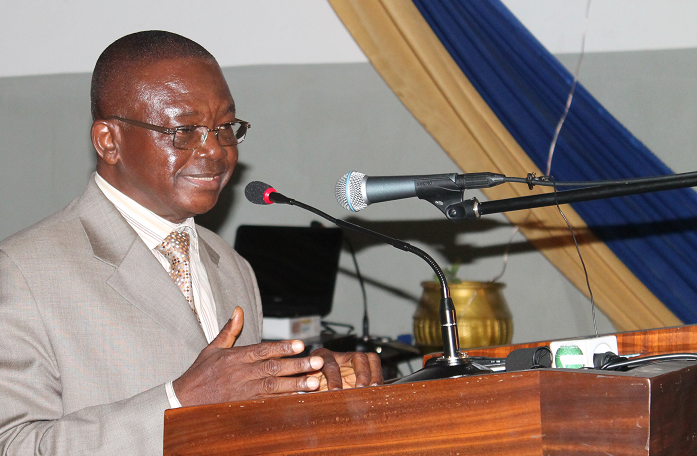A former Auditor-General, Professor Edward Dua Agyeman, has said the assets declaration regime should be extended to all public officials who exercise discretion over public funds and/or take legislative decisions.
The law, as it stands now, is applicable to only Article 71 office holders, such as the President, the Vice-President, the Chief Justice, Ministers of State, the Speaker of Parliament and Members of Parliament.
“Coverage should include all individuals closely connected with the public officials, such as spouses and dependent children,” he proposed in an interview with the Daily Graphic in Accra.
Sharing his perspectives on the assets declaration regime in Ghana, Prof. Agyeman further recommended that “sanctions should apply to those who fail to comply with the assets declaration laws. Sanctions should be explicit and severe and should include criminal prosecution for falsifying extremely bad and deliberate errors or omissions.”
Verifiable information
The former Auditor-General also proposed that the law should give the Auditor-General the mandate to verify the accuracy of information in the declaration and gazette the contents of the declaration within 30 days.
“The public should be given guidelines on how to access the declaration and any false declaration detected be reported to the Auditor-General,” he added.
He said the government and Parliament should endeavour to adequately resource public anti-corruption institutions, such as the office of the Auditor-General and the Commission on Human Rights and Administrative Justice (CHRAJ), to ensure effective and efficient functioning and the discharge of their assets declaration mandate.
Act on recommendations
Prof. Agyeman, accordingly, called on the government and Parliament to demonstrate the political will and commitment by amending Chapter 24 of the 1992 Constitution and the Public Office Holder (Declaration of Assets and Disqualification) Act, 1998 (Act 550) to take into account all his recommendations.
He added that assets declaration should be made a condition for accepting a position in the public service.
Prof. Agyeman, who is currently a Senior Research Fellow at the Governance Unit of the Institute of Economic Affairs (IEA), has written a paper on: “Fighting Corruption in The Public Sector Of Ghana: The Role Of Assets Declaration”.
In the paper, he said the declaration of assets, liabilities and other interests owned or controlled by public officials, their families and close associates had become a key tool in combating corruption around the world.
Since the 1970s, Ghana has adopted a declaration of assets and liabilities by public office holders as a more potent tool in fighting corruption in the public sector, but Prof. Agyeman, in his paper, expressed the view that the assets declaration regime as it currently existed in Ghana was unsatisfactory and not potent enough as a tool to combat corruption.
Current position
The current assets declaration regime is governed by Chapter 24 of the 1992 Constitution and the Public Office Holder (Declaration of Assets and Disqualification) Act, 1998, (Act 550).
Prof. Agyeman stated: “The current laws do not allow the Auditor-General, who is the administering authority, to open the sealed envelope containing the official’s assets declaration for verification and scrutiny, nor to ask for explanation, clarification and correction.
“The current system does not allow public access to obtain information on compliance.
“The filing frequency gap which allows officials to resubmit the assets declaration form every four years is found to be too wide and does not give current data on the official’s assets to the Auditor-General.”
He said there was no application of sanctions for non-submission, late submission and false declaration because the Auditor-General did not have the mechanism to know the public officials who had defaulted or had made false declaration.
Those hiccups, he said, must be critically looked at by the government and other stakeholders if the import of assets declaration was to be achieved.
Background
Article 286 (1) of the 1992 Constitution notes: “(1) A person who holds a public office mentioned in Clause (5) of this article shall submit to the Auditor-General a written declaration of all property or assets owned by, or liabilities owed by, him whether directly or indirectly.”
Per the Constitution, that declaration is supposed to be done within three months after the coming into force of the Constitution or before taking office, as the case may be, at the end of every four years; and at the end of his term of office.

